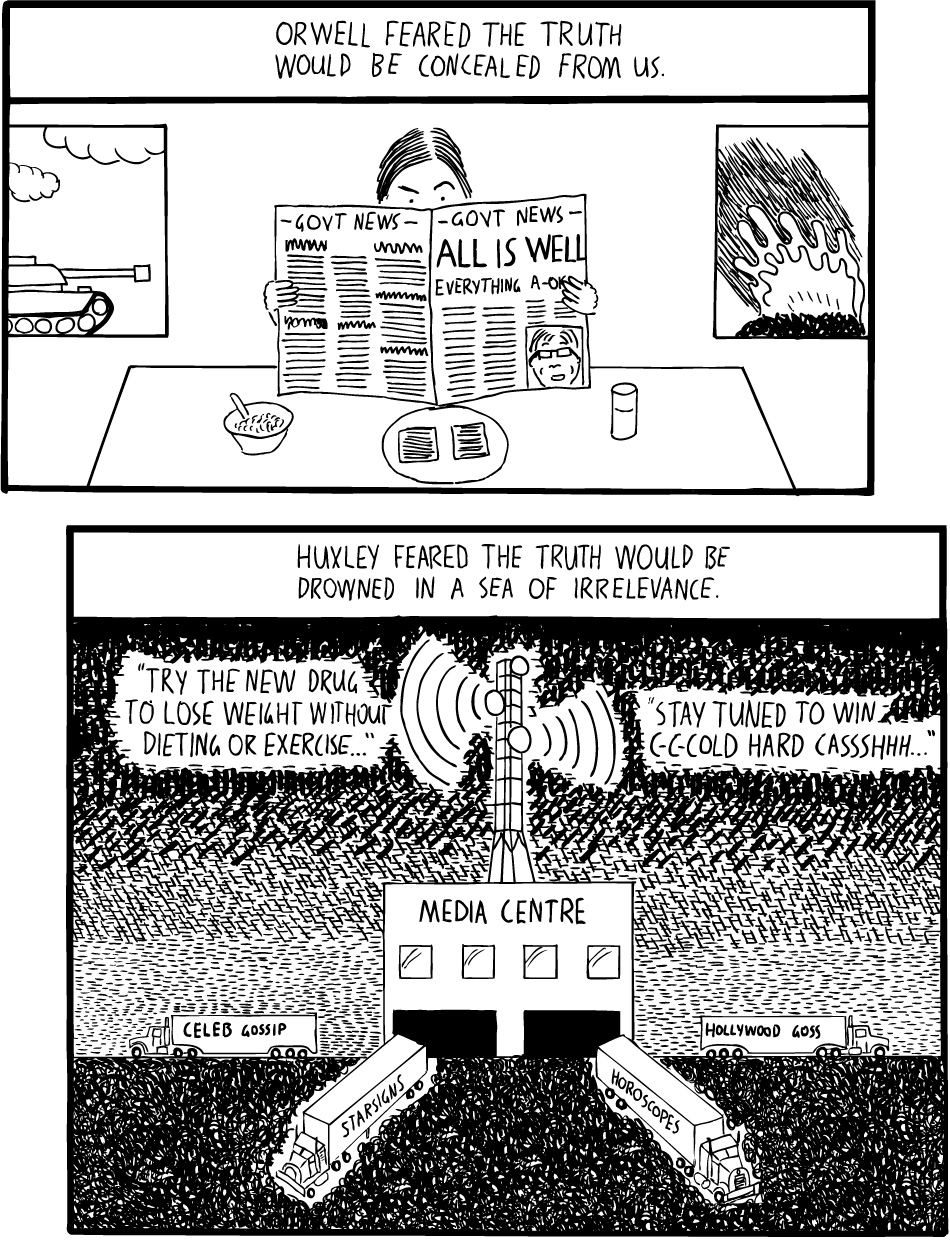
Although penned more than a year and a half ago, I recently stumbled upon a thought-provoking cartoon by Stuart McMillen and based on text by Neil Postman. I’ve posted two key panels to the left, but clicking there will take you to the entire cartoon.
In full, it concludes that Huxley’s fears have become more prevalent than Orwell’s, and that the public has an “almost infinite appetite for distractions.” Information and entertainment overload are thought to be contributing factors. We are hyperlinked, super networked and gadget consumed. (For example, how many travelers do you see toggling through email, Twitter, AP news and Angry Birds apps when in an airport? How many of you are those travelers? I’m partially guilty.)
If the Huxley fears are accurate, it raises an interesting question for crisis/reputation managers.
Does a crisis today have more impact or less impact than, say, a decade ago when bad news came from fewer focal points?
By example, I’d venture to guess that the public was more informed about the Toyota recall or the Qantas’ emergency landing (caused by a faulty Rolls-Royce engine) than a decade ago. But is the impact the same as a decade ago?
Continue reading Poll: Impact of crises today – deep or shallow?

 When I launched this blog on
When I launched this blog on 
 If you are unfamiliar with Wednesday’s dramatic events that happened to Qantas, Austrialia’s national airline
If you are unfamiliar with Wednesday’s dramatic events that happened to Qantas, Austrialia’s national airline 

 Q: When an organization faces a determined critic, when should criticisms be ignored, and when is it time to address the critic?
Q: When an organization faces a determined critic, when should criticisms be ignored, and when is it time to address the critic?